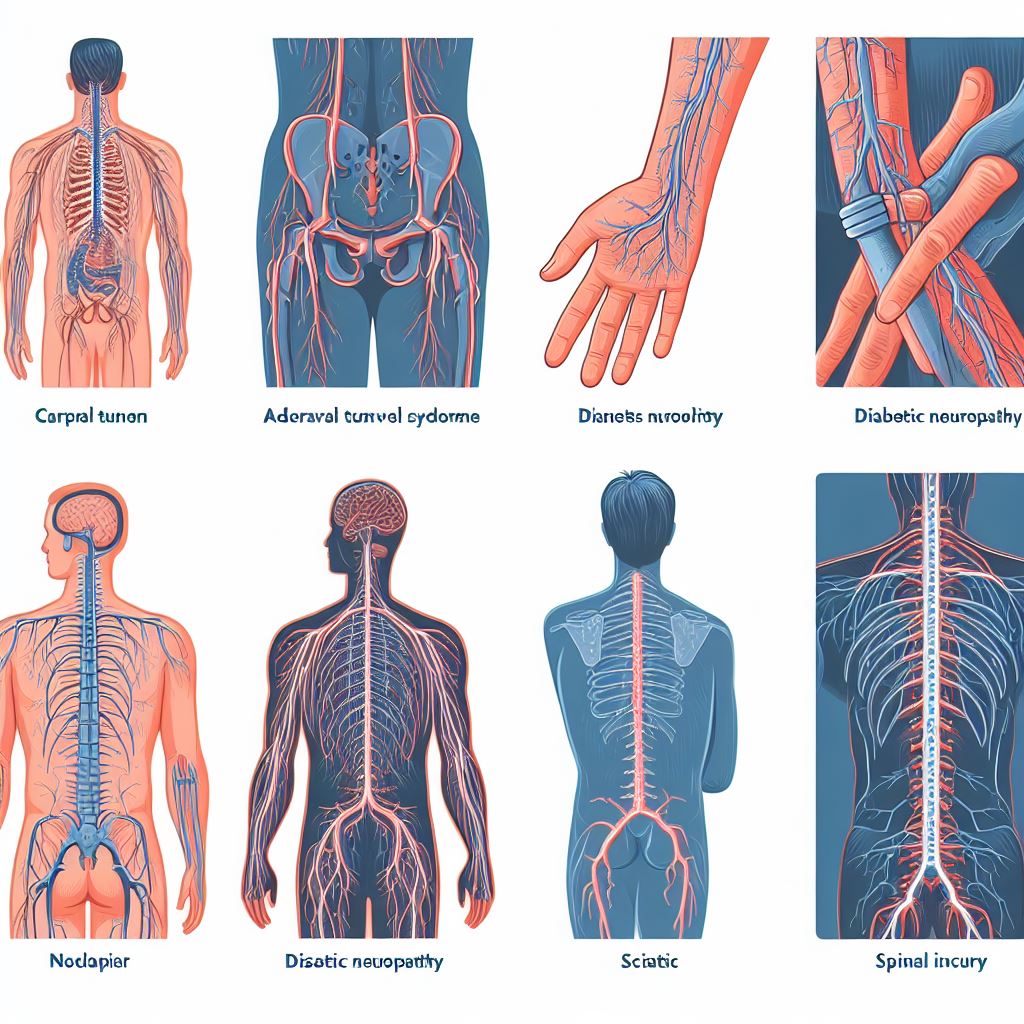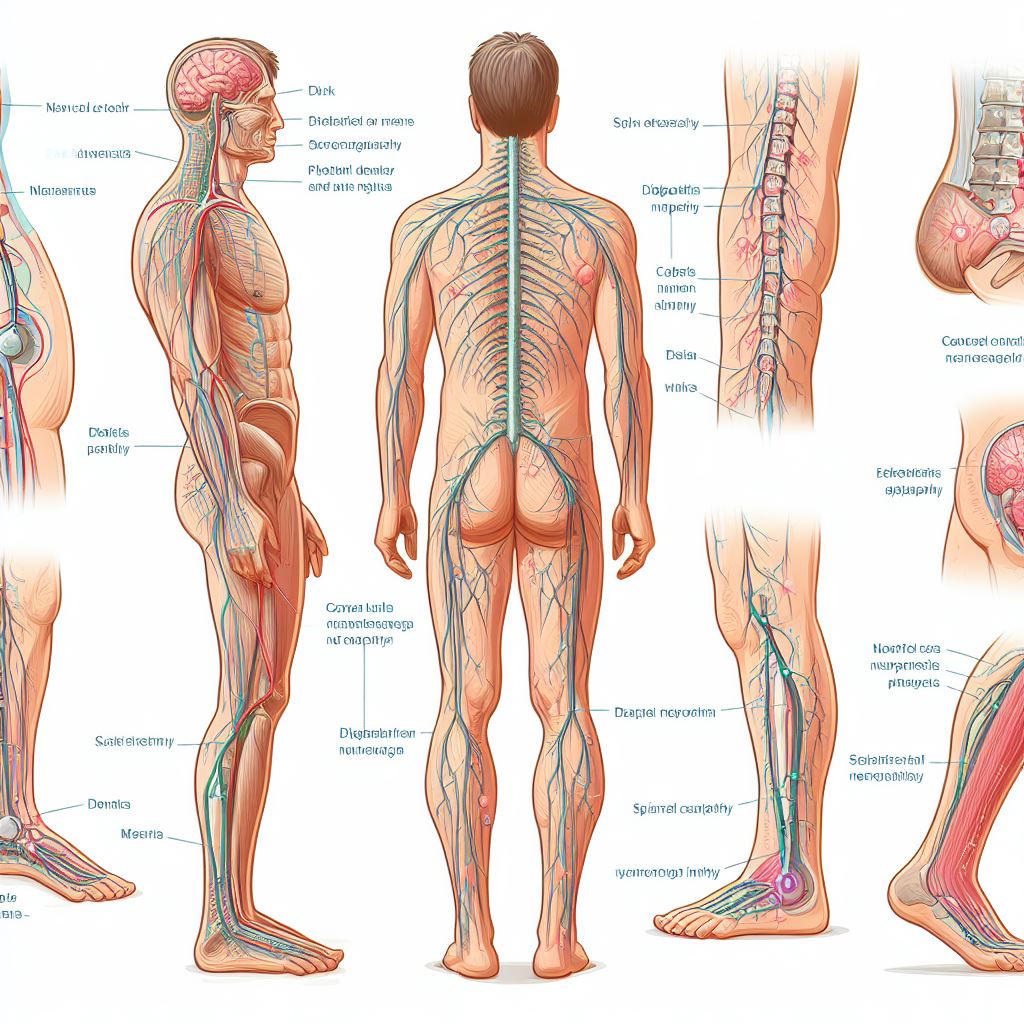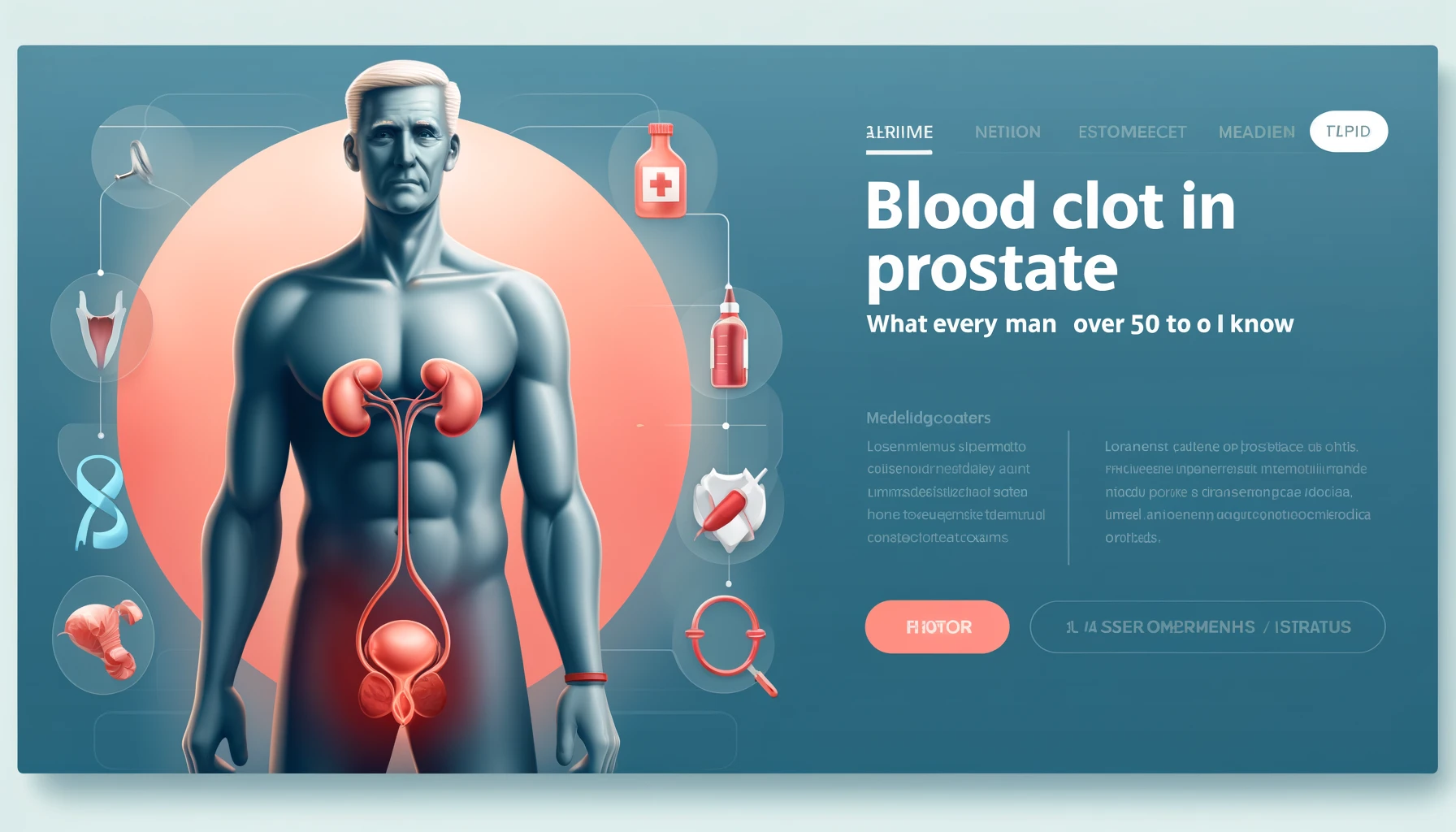nerve damage erectile dysfunction treatment
Erectile dysfunction (ED) is a common condition that affects millions of men worldwide. While there are various causes of ED, one often overlooked factor is nerve damage.
In this article, we will explore the relationship between nerve damage and erectile dysfunction and discuss the path to recovery.
Contents
Understanding Nerve Damage
Nerve damage, medically referred to as neuropathy, is a multifaceted condition that warrants a closer examination to comprehend its intricate nature fully. This comprehensive exploration delves into the various facets of nerve damage, its causes, symptoms, and implications for erectile dysfunction (ED).
The Causes of Nerve Damage
Nerve damage can stem from an array of sources, each with its own set of triggers. Understanding these underlying causes is paramount in addressing and managing this condition effectively:
- Diabetes
Diabetes is a leading cause of nerve damage. Prolonged high blood sugar levels can wreak havoc on the peripheral nerves responsible for transmitting signals to and from the brain and spinal cord.
- Trauma and Injury
Physical injuries, accidents, or surgical procedures can inflict direct harm to nerves. Even minor trauma can disrupt the intricate network of nerves throughout the body.
- Autoimmune Disorders
Certain autoimmune diseases, such as Guillain-Barré syndrome, target the body’s nervous system, leading to nerve damage as an unfortunate consequence.
- Infections
Infections caused by viruses, bacteria, or parasites can infiltrate nerves, causing inflammation and damage. Conditions like shingles and Lyme disease are examples of infections that can affect nerves.
- Medications and Toxins
Some medications and toxic substances can have a detrimental impact on nerves. Chemotherapy drugs, for instance, are known to cause peripheral neuropathy.
Signs and Symptoms
The manifestations of nerve damage can vary widely, depending on the nerves affected and the underlying cause. Common symptoms include:
- Numbness and Tingling
Many individuals with nerve damage experience sensations of numbness, tingling, or “pins and needles” in the affected areas.
- Muscle Weakness
Weakness in the muscles served by the damaged nerves can lead to difficulty in performing everyday tasks.
- Pain
Nerve pain, often described as burning or shooting pain, can be intense and debilitating. It may be chronic or intermittent.
- Loss of Coordination
Some individuals with nerve damage may notice a loss of coordination, making it challenging to maintain balance.
Implications for Erectile Dysfunction (ED)
The connection between nerve damage and erectile dysfunction is a vital aspect of this discussion. Nerves play a pivotal role in the complex process of achieving and maintaining an erection. When nerve damage occurs, it can disrupt this process, leading to ED.
- Neural Pathways for Erection
Nerve signals are integral for triggering the relaxation of blood vessels in the penis, allowing an influx of blood necessary for an erection. Any interruption in these neural pathways can result in difficulty achieving or sustaining an erection.
- Psychological Impact
It’s essential to acknowledge the psychological impact of nerve damage-related ED. The frustration, anxiety, and loss of self-esteem that often accompany this condition can exacerbate the problem.
Recognizing the Signs
Erectile dysfunction (ED) can be a distressing condition, and when nerve damage is the underlying cause, recognizing the signs becomes paramount. In this detailed exploration, we will delve into the nuanced aspects of identifying the signs and symptoms of nerve damage-related ED.
Difficulty Achieving or Maintaining an Erection
- Initial Struggles: One of the primary signs of nerve damage-related ED is the difficulty in achieving an erection. Men may find it increasingly challenging to attain an erection, even with sexual stimulation.
- Inconsistent Performance: Nerve damage can lead to erratic erections. Some men may experience occasional success while struggling with frequent failures.
- Inability to Sustain: Even if an erection is achieved, it may be challenging to maintain it throughout sexual intercourse. This can lead to frustration and anxiety.
Reduced Sensation
- Diminished Sensitivity: Nerve damage often results in a decrease in sensitivity in the genital area. Men may report reduced sensation during sexual activity, making it difficult to achieve sexual satisfaction.
- Delayed Orgasm: Nerve damage can prolong the time required to reach climax. This delay in achieving orgasm can be frustrating for both the individual and their partner.
Psychological Impact
- Anxiety and Stress: Experiencing nerve damage-related ED can lead to increased anxiety and stress. The fear of not being able to perform sexually can become a self-fulfilling prophecy, exacerbating the problem.
- Loss of Self-Esteem: Persistent ED can have a profound impact on a man’s self-esteem and self-confidence, affecting his overall well-being.
Relationship Strain
- Communication Issues: Couples may struggle to communicate about the challenges posed by nerve damage-related ED, leading to misunderstandings and emotional distance.
- Intimacy Concerns: The inability to engage in sexual activity can strain intimate relationships, causing frustration and tension between partners.
Seeking Professional Help
Recognizing these signs is the first step toward addressing nerve damage-related ED. If you or someone you know is experiencing these symptoms, seeking professional help is essential. Healthcare providers can conduct a thorough evaluation to determine the underlying cause of ED, including the possibility of nerve damage.
Diagnosis and Evaluation
The accurate diagnosis and evaluation of nerve damage-related erectile dysfunction (ED) require a comprehensive approach. In this detailed exploration, we will delve into the intricacies of diagnosing and evaluating this condition, emphasizing the crucial role of healthcare professionals.
Medical History
- Patient Interview: The diagnostic process often begins with a detailed interview. Healthcare providers will inquire about the patient’s medical history, including any underlying conditions or previous injuries that may contribute to nerve damage-related ED.
- Medication History: Patients are asked about their medication history, as certain drugs can lead to nerve damage as a side effect.
Physical Examination
- Neurological Examination: A physical examination allows healthcare professionals to assess the patient’s neurological status. They may test reflexes, muscle strength, and sensory perception to identify signs of nerve damage.
- Genital Examination: A thorough genital examination may reveal physical signs of nerve damage, such as decreased sensation or changes in blood flow to the area.
Nerve Conduction Studies
- Electromyography (EMG): This test measures the electrical activity in muscles and can help pinpoint the location and extent of nerve damage.
- Nerve Conduction Velocity (NCV) Test: NCV measures how quickly electrical signals travel along nerves. Slower nerve conduction can indicate nerve damage.
Imaging Studies
- MRI (Magnetic Resonance Imaging): In some cases, healthcare providers may recommend an MRI to visualize the nerves and surrounding tissues. This can help identify any structural abnormalities or sources of compression.
- Ultrasound: Ultrasound imaging can be used to assess blood flow to the genital area and detect any vascular issues that may contribute to ED.
Blood Tests
- Blood Glucose Test: For patients with diabetes, monitoring blood glucose levels is crucial, as uncontrolled diabetes can lead to nerve damage.
- Hormone Levels: Blood tests may be conducted to measure hormone levels, such as testosterone, as hormonal imbalances can contribute to ED.
Psychological Assessment
- Questionnaires: Patients may be asked to complete questionnaires to assess the psychological impact of ED, including stress, anxiety, and depression.
- Sexual History: A detailed sexual history discussion can help identify any psychological factors contributing to ED, such as performance anxiety or relationship issues.
Collaborative Approach
The diagnosis and evaluation of nerve damage-related ED often involve a multidisciplinary team of healthcare professionals. Urologists, neurologists, endocrinologists, and psychologists may collaborate to ensure a comprehensive assessment.
Customized Treatment Plan
Once a diagnosis is established, a customized treatment plan is developed based on the individual’s specific needs and the severity of the nerve damage. Treatment options may include:
- Lifestyle changes
- Medications, such as PDE5 inhibitors
- Nerve regeneration therapies
- Psychological counseling
Treatment Options

Addressing nerve damage-related erectile dysfunction (ED) requires a multifaceted approach, encompassing various treatment options tailored to the individual’s specific needs. In this comprehensive exploration, we will delve into the nuanced aspects of these treatment options.
Lifestyle Changes
- Diet and Exercise: Adopting a healthy lifestyle is foundational. A balanced diet and regular exercise can help manage conditions like diabetes, which can exacerbate nerve damage. Weight management is crucial for overall health and can positively impact ED.
- Smoking and Alcohol: Quitting smoking and moderating alcohol consumption can significantly improve nerve health and erectile function.
- Stress Management: Learning stress-reduction techniques, such as meditation or yoga, can be beneficial, as stress can exacerbate ED.
Medications
- PDE5 Inhibitors: Medications like sildenafil (Viagra), tadalafil (Cialis), and vardenafil (Levitra) can enhance blood flow to the penis, facilitating erections. These drugs are typically taken before sexual activity and require sexual stimulation to be effective.
- Hormone Therapy: For individuals with hormonal imbalances contributing to ED, hormone replacement therapy may be recommended.
Nerve Regeneration Therapy
- Nerve Growth Factor (NGF) Injections: NGF injections have shown promise in stimulating nerve repair. These injections can potentially improve nerve function and enhance sexual performance.
- Platelet-Rich Plasma (PRP) Therapy: PRP therapy involves injecting a patient’s platelets into the affected area to stimulate healing. It has been explored as a potential treatment for nerve damage-related ED.
Vacuum Erection Devices (VEDs)
- Mechanical Devices: VEDs are external devices that create a vacuum around the penis, drawing blood into the area to achieve an erection. These devices can be used in conjunction with other treatments.
Psychological Support
- Counseling: Seeking psychological counseling or therapy is essential for addressing the emotional and psychological impact of ED. Therapy can help individuals manage anxiety, depression, or relationship issues related to ED.
- Sexual Therapy: Specialized sexual therapists can guide on improving sexual function and intimacy.
Penile Implants
- Inflatable Implants: Surgically implanted inflatable devices can be inflated to produce an erection and deflated when not in use. They offer a more permanent solution for severe cases of ED.
Experimental Treatments
- Stem Cell Therapy: Experimental therapies involving stem cells are being investigated for their potential in regenerating damaged nerves. Research in this area is ongoing.
- Shockwave Therapy: Low-intensity shockwave therapy has been explored as a means to improve blood flow and potentially stimulate nerve regeneration in the genital area.
Collaborative Approach
The choice of treatment often depends on the underlying cause and severity of the nerve damage. Healthcare professionals from various specialties, including urologists, neurologists, and psychologists, may collaborate to develop a comprehensive treatment plan.
ALSO READ: How To Use Olive Oil For Erectile Dysfunction – Unlocking the Power of Nature (2023 Updated)
Psychological Support
Erectile dysfunction (ED) resulting from nerve damage not only affects the physical aspects of sexual function but also takes a toll on a person’s mental and emotional well-being. Comprehensive psychological support plays a crucial role in addressing the emotional impact of nerve damage-related ED. In this detailed exploration, we will delve into the various facets of psychological support.
Recognizing Emotional Impact
- Anxiety and Stress: ED can trigger anxiety and stress, leading to a vicious cycle of performance anxiety and further erectile difficulties.
- Depression: Prolonged ED can lead to depression, characterized by feelings of sadness, hopelessness, and loss of interest in activities.
- Loss of Self-Esteem: Individuals may experience a significant blow to their self-esteem and self-confidence, affecting their overall self-image.
The Role of Psychological Support
- Counseling and Therapy: Professional counseling and therapy can provide individuals with a safe and supportive environment to express their concerns and emotions related to ED. Therapists can help patients develop coping strategies, manage anxiety, and work through relationship issues.
- Sexual Therapy: Specialized sexual therapists can address sexual dysfunction by guiding sexual techniques, communication, and intimacy. They work with individuals and couples to improve sexual satisfaction and overall sexual health.
Communication and Education
- Open Communication: Encouraging open and honest communication between partners is essential. Discussing fears, expectations, and desires can foster understanding and emotional connection.
- Education: Providing individuals and couples with accurate information about ED, its causes, and available treatments can demystify the condition and reduce anxiety.
Cognitive Behavioral Therapy (CBT)
- Identifying Negative Thought Patterns: CBT helps individuals recognize and challenge negative thought patterns related to ED. It empowers them to replace self-defeating beliefs with more constructive ones.
- Stress Management: CBT techniques can teach stress management skills to reduce the emotional impact of ED.
Support Groups
- Peer Support: Joining support groups for individuals dealing with ED can provide a sense of community and validation. Sharing experiences and hearing from others facing similar challenges can be comforting.
Relationship Counseling
- Couples Therapy: ED can strain intimate relationships. Couples therapy can address communication issues, improve emotional connection, and help couples navigate the challenges together.
Self-Care
- Self-Compassion: Encouraging self-compassion and self-care is vital. Individuals should learn to be kind to themselves and prioritize their mental well-being.
Medication and Psychological Support
- Combination Therapy: In some cases, combining psychological support with medical treatments, such as PDE5 inhibitors, can yield the most effective results.
Conclusion – Nerve Damage Erectile Dysfunction Treatment
Nerve damage-related erectile dysfunction is a complex issue, but it is not insurmountable. With the right diagnosis and treatment, many men can regain their sexual function and confidence.
If you suspect nerve damage may be the cause of your ED, don’t hesitate to seek professional help.
FAQs
Nerve damage-related erectile dysfunction (ED) can be a complex and emotionally challenging condition. In this detailed FAQ section, we will address common questions and concerns related to nerve damage-related ED.
-
Is nerve damage-related ED reversible?
In many cases, yes. The extent of recovery depends on the underlying cause and the severity of nerve damage. Early diagnosis and appropriate treatment, including lifestyle changes and medications, can often lead to significant improvement or even complete recovery.
-
Are there natural remedies for nerve damage-related ED?
Yes, several natural remedies and lifestyle changes can help. These include maintaining a healthy diet, regular exercise, stress reduction techniques, and avoiding smoking and excessive alcohol consumption. However, it’s essential to consult a healthcare professional for personalized guidance.
-
How can I prevent nerve damage-related ED?
Prevention involves managing underlying conditions and adopting a healthy lifestyle. If you have diabetes, keeping your blood sugar levels under control is crucial. Avoiding injuries, practicing safe sex, and maintaining a balanced diet and regular exercise routine can also help prevent nerve damage.
-
Are there any side effects of nerve regeneration therapy?
The potential side effects of nerve regeneration therapy can vary. Common side effects may include minor pain or discomfort at the injection site. It’s important to discuss potential risks and benefits with your healthcare provider before undergoing such treatments.
-
Is ED always related to nerve damage?
No, ED can have various causes. While nerve damage is one possible contributor, other factors such as psychological issues, vascular problems, hormonal imbalances, and medication side effects can also lead to ED. A thorough evaluation by a healthcare professional can help determine the underlying cause in your case.
-
Can psychological support alone treat nerve damage-related ED?
Psychological support is a crucial component of ED treatment, but its effectiveness may vary. For some individuals, psychological support alone may help improve their sexual function by addressing anxiety and stress. However, a comprehensive approach that combines psychological support with medical treatments may yield the best results.
-
Is it necessary to involve a partner in ED treatment and counseling?
Involving a partner in ED treatment and counseling can be highly beneficial. It fosters open communication, reduces misunderstandings, and enhances emotional support. Addressing ED as a couple can lead to a more satisfying and fulfilling sexual relationship.
-
Are there any long-term complications of nerve damage-related ED?
Chronic ED can have long-term implications for mental health and relationships. If left untreated, it can lead to persistent anxiety, depression, and strained relationships. Seeking early intervention and treatment is essential to minimize these long-term complications.
-
Can nerve damage-related ED affect fertility?
In some cases, nerve damage-related ED may impact fertility. If achieving an erection is consistently challenging, it may affect the ability to engage in sexual intercourse and conceive. Couples experiencing fertility concerns should consult with a fertility specialist for guidance and options.
-
How can I find the right healthcare provider for nerve damage-related ED?
Finding the right healthcare provider involves research and open communication. Seek recommendations from your primary care physician, read reviews, and don’t hesitate to schedule initial consultations with multiple specialists to find the one who understands your needs and provides the most suitable treatment plan.
-
Can lifestyle changes alone improve nerve damage-related ED?
Lifestyle changes can be effective, especially when the ED is mild. A healthy lifestyle can help manage contributing factors like diabetes and improve overall sexual health. However, more severe cases may require additional medical interventions.
-
Is nerve damage-related ED common?
Nerve damage-related ED is relatively common, especially among individuals with conditions like diabetes. However, it can affect people of all ages, and the prevalence increases with age. Seeking timely treatment can significantly improve the prognosis.
-
Can nerve damage-related ED affect emotional intimacy in a relationship?
Yes, ED can impact emotional intimacy. The frustration and anxiety associated with ED can strain emotional connections in a relationship. Partners need to communicate openly, support each other, and consider couples therapy when needed to maintain and enhance emotional intimacy.
-
Are there age-related factors in nerve damage-related ED?
ED can occur at any age, but it becomes more common with age. While older individuals may be more prone to nerve damage-related ED due to factors like diabetes, younger men can also experience it due to injuries or other medical conditions.
-
Is nerve damage-related ED treatable in older adults?
Yes, nerve damage-related ED is treatable in older adults. Age alone should not deter individuals from seeking treatment. Healthcare providers can tailor treatment plans to accommodate the unique needs and health considerations of older adults.
Seeking professional guidance is crucial when dealing with nerve damage-related ED, as it can significantly impact both physical and emotional well-being. Open communication with healthcare providers and partners can pave the way for effective treatment and improved quality of life.
nerve damage erectile dysfunction treatment, nerve damage erectile dysfunction treatment, nerve damage erectile dysfunction treatment, nerve damage erectile dysfunction treatment, nerve damage erectile dysfunction treatment, nerve damage erectile dysfunction treatment, nerve damage erectile dysfunction treatment, nerve damage erectile dysfunction treatment, nerve damage erectile dysfunction treatment, nerve damage erectile dysfunction treatment, nerve damage erectile dysfunction treatment, nerve damage erectile dysfunction treatment, nerve damage erectile dysfunction treatment, nerve damage erectile dysfunction treatment, nerve damage erectile dysfunction treatment, nerve damage erectile dysfunction treatment, nerve damage erectile dysfunction treatment, nerve damage erectile dysfunction treatment, nerve damage erectile dysfunction treatment, nerve damage erectile dysfunction treatment, nerve damage erectile dysfunction treatment, nerve damage erectile dysfunction treatment, nerve damage erectile dysfunction treatment, nerve damage erectile dysfunction treatment, nerve damage erectile dysfunction treatment, nerve damage erectile dysfunction treatment, nerve damage erectile dysfunction treatment, nerve damage erectile dysfunction treatment, nerve damage erectile dysfunction treatment, nerve damage erectile dysfunction treatment, nerve damage erectile dysfunction treatment,












